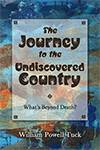The Bible, Christianity, and Me (Briefly)
I have seen a few comments lately from both sides of the spectrum about just where the Bible should stand in relation to Christianity and to a person’s personal beliefs. It seems that not only are Christians willing to define the role of the Bible for other Christians, but non-Christians try to explain to Christians, especially those who are not conservative, just how they should view the Bible.
Basically, if I don’t take a very literal and direct view of scripture, these folks believe that I am not sincerely and really a Christian.
Now the first answer to that, of course, is that it’s really not their decision to make. I don’t have to prove to anyone else that I’m a Christian. To the extent that I do so, I do so to the congregation of which I’m a member, and none of them are in any doubt on the matter. But ultimately, the only person to whom I must give account for my spiritual state is God.
But there are a couple of simple facts involved as well. First, there is no Bible without a community. The Bible doesn’t define and create the community. The community defines the Bible. Inspired by God, in fact, the community creates the Bible. There are really no Biblical Christians, just a Christian Bible.
There is no external way to determine just how one should take the Bible. One has to look into the Bible, as well as at the communities that have formed and interpreted it to discover that. Modern fundamentalism has tried to pretend that they are somehow historical Christianity, but they are not. They’re just another community using the Bible in their own way.
Nobody does everything the Bible says. Nobody can. It is a document that reflects and in some cases records a history of belief, not a systematic belief system. Nobody can make good use of it without intelligently applying experience and their own reason. Unreasonable people with a Bible will tend to become more unreasonable. It really helps much more with the process of asking questions than in finding final answers.
Some will suggest that only the extreme literalist approach is valid. I hear this even from those who have left the Christian faith entirely after rejecting that approach. I understand how they could reject that approach, I do not think such an approach has any hope of making sense out of scripture at all. I fail to see where they imagine that they get a mandate to take that approach. Normally, they present me with texts interpreted their way to prove that I should interpret the Bible their way. Having rejected their way, however, I am unimpressed. My preference is to discover from scripture just what it is and how it has come to be, and to learn from both the experience it records, and the experience it reflects in the history of its text.
It’s what makes sense to me, and that is all it really has to do.
